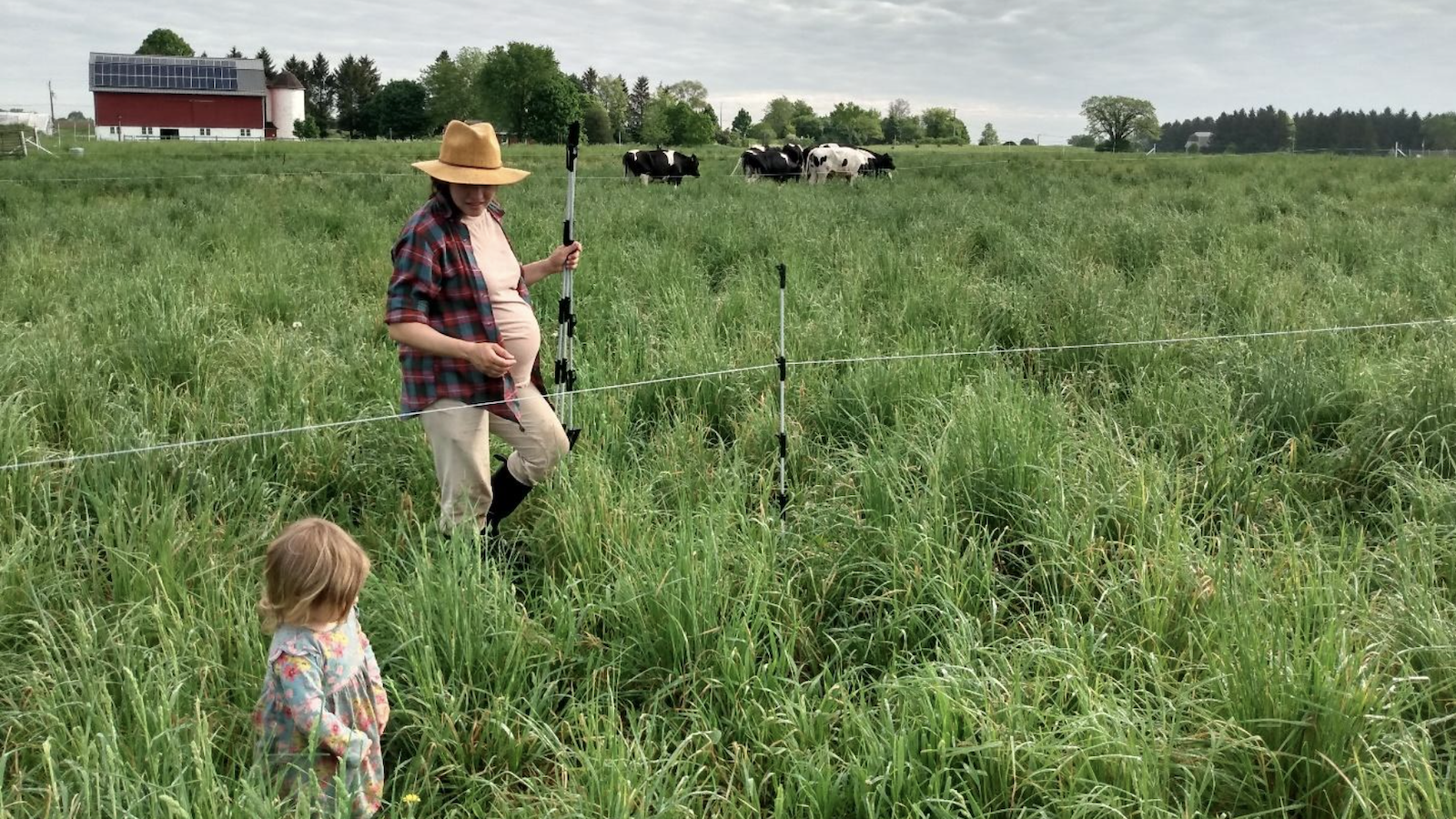The summer sun rises early in anticipation of what the day may hold and with it, the Gutschenritter family. Michael and Courtney Gutschenritter ready their two young daughters, ages 3 and 1, for their morning ritual of moving the animals to new pasture on their farm.
Before breakfast, with the youngest secured in a backpack, the family motors off on their utility-terrain vehicle toward their flock of 60 Shetland sheep who crowd the fence line awaiting their daily commute. While seemingly a welcomed family outing on a summer morning alive with bird song and possibility, the children treat the chore no differently in mid-winter.

The Gutschenritter’s oldest daughter greets the sheep. Courtesy of Courtney Gutschenritter
On a recent morning, the baby gave no protest at greeting the dawn and the sheep when it was a mere 4 degrees outside. The eldest, undaunted, grabbed her tiara on her way out the door.
Of the experience of raising their young family in this environment, Courtney said, “I feel like it's a dream come true for me.”
Wisconsin winters, like farming, are best suited to hearty folk. The Gutschenritter family is the modern embodiment of this, with a progressive twist. From Three Brothers Farm in Oconomowoc, Wisconsin, the family is successfully operating the farm that has been in Michael’s family for generations, while completely transforming its methods to be in alignment with the couple’s land ethic.

Custom grazed cattle at Three Brothers Farm. Courtesy of Courtney Gutschenritter
A new dawn
Michael grew up in one of the two houses on the 100-acre property, with his grandparents occupying the other. His childhood was spent exploring the glaciated land that surrounded him and was enriched by his close relationship with his grandparents.
While his grandfather owned the farm, he didn’t actively farm it himself. He primarily rented the acres to other farmers in the area who were using the land for broadacre corn and soy production.
Though his grandfather longed to farm the land himself, he carried scars from his own family losing their farm during the Great Depression, as too many hard-working families did in that dark period in history.
After his grandfather passed, the land he loved was set to be sold—something Michael couldn’t bear to see happen.
Since his graduation from college he had been pursuing a life of adventure—paddling the Mississippi River, hiking the Appalachian Trail, and skiing and rafting throughout Colorado.
With the farm’s fate hanging in the balance, he dove into yet another adventure—taking over the farm without any prior experience. In the decade since he began, the farm has undergone immense changes.
What began as a CSA that was able to realize steady growth for the years that it ran, has now transitioned to a 3,000-hen egg operation with a flock of Shetland sheep and specialty grazed cattle.
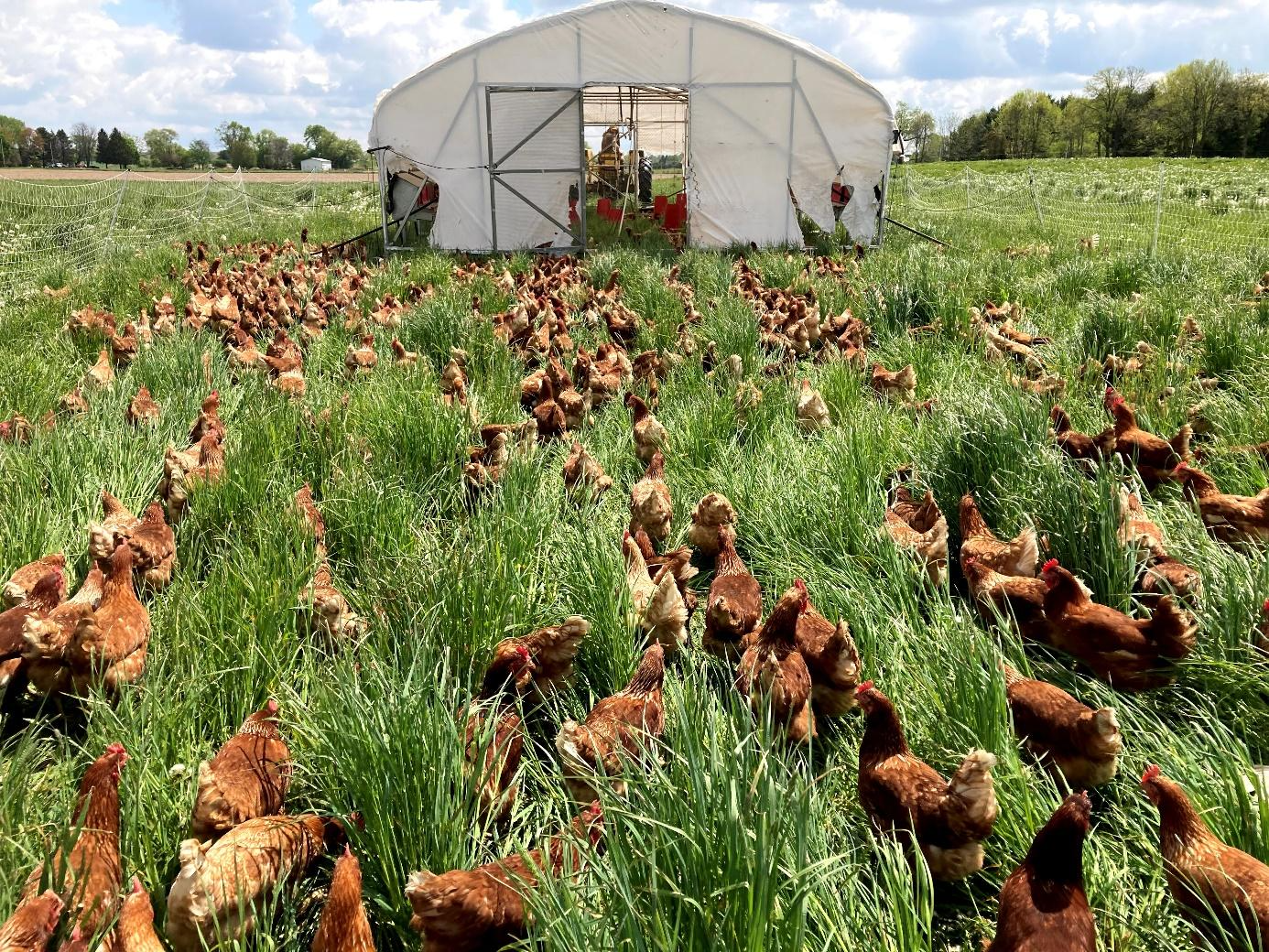
Laying hens at Three Brothers Farm. Courtesy of Courtney Gutschenritter
The land that was once populated with conventional corn and soy has been painstakingly converted to perennial pasture for their livestock, as well as pollinator habitat.
The 28 acres of pollinator habitat on Three Brothers Farm was made possible in part by the Bee and Butterfly Habitat Fund—a unique conservation program that creates site specific pollinator mixes and provides support for public, private and corporate projects in the Midwest.
“We think it's important to get different species into the ground, species that originated here, species that are drought tolerant—and pollinator plantings tend to be that,” Courtney said of their decision to dedicate nearly 1/3 of their land to this initiative. She acknowledged that encouraging both drought tolerant and pollinator species are a prudent hedge against climate change, both in their immediate community and in the world more broadly.
The transition of the land was gradual and an endeavor that Michael began on his own when he envisioned a new path forward for the farm. Courtney took up the fight with him when the couple—friends from college, who reunited after a decade apart—got together.
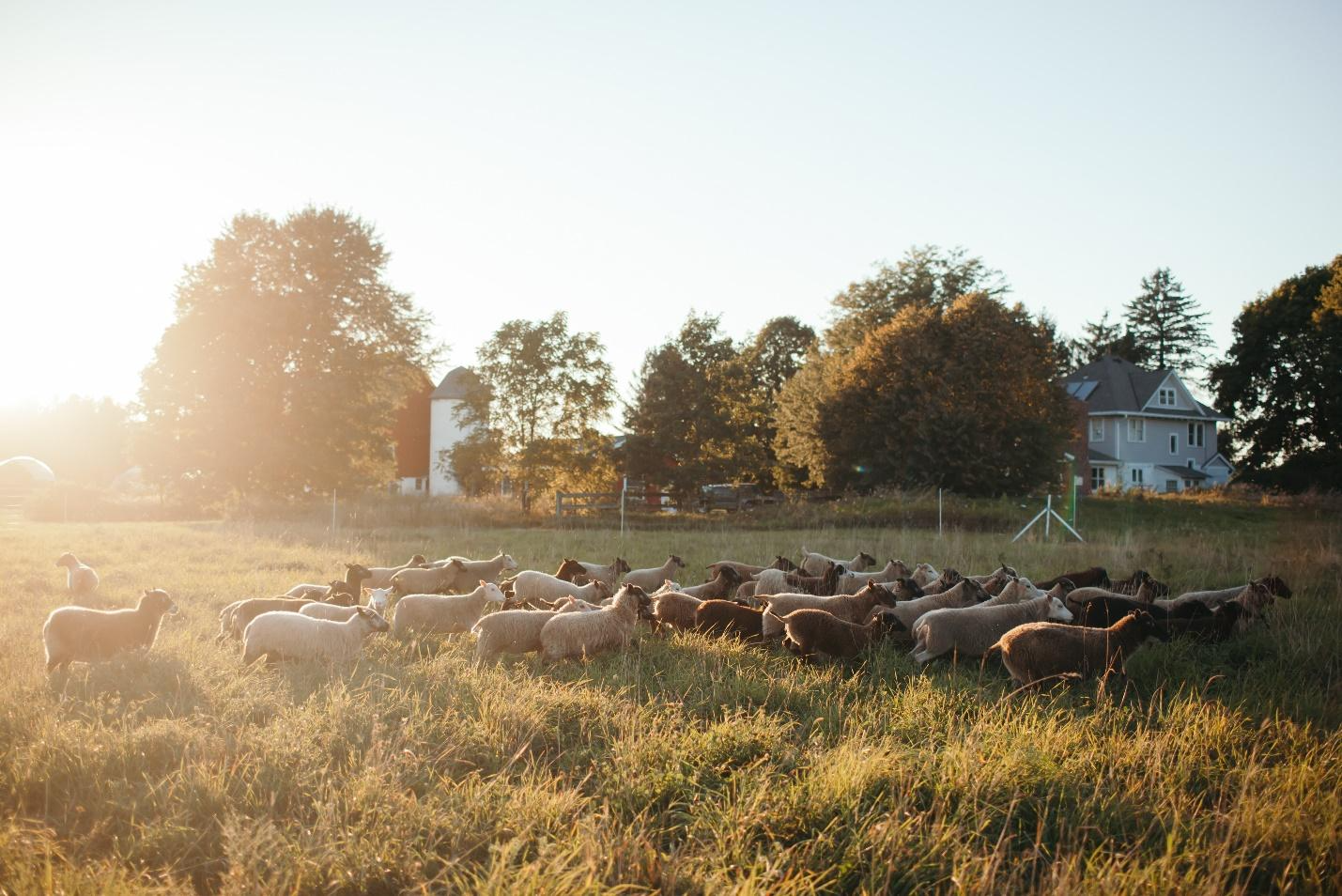
Shetland Sheep at Three Brothers Farm. Courtesy of Courtney Gutschenritter
Stronger together
While Michael had been exploring and adventuring, Courtney had been doing the same and gaining agricultural skills while she’d been doing it. Growing up, she had been a city girl—an identity she shed in the years after college.
The summer after graduation she joined some friends, on a whim, who were working on a farm in northwest Wisconsin through AmeriCorps. Laughingly, she recounts not knowing the names of certain vegetables and her introduction to milking a cow, but said she loved it.
While assuming that she would farm for a short time to satisfy her curiosity, then move on, she never lost interest. After that first summer, she pursued other opportunities that enabled her to see the world as well, working on farms in Virginia, Maine and even Italy.
Once she returned to Wisconsin she began her own flower business—growing flowers and designing arrangements for weddings and events—a passion that paired her art training from college and her agricultural training from the subsequent years.
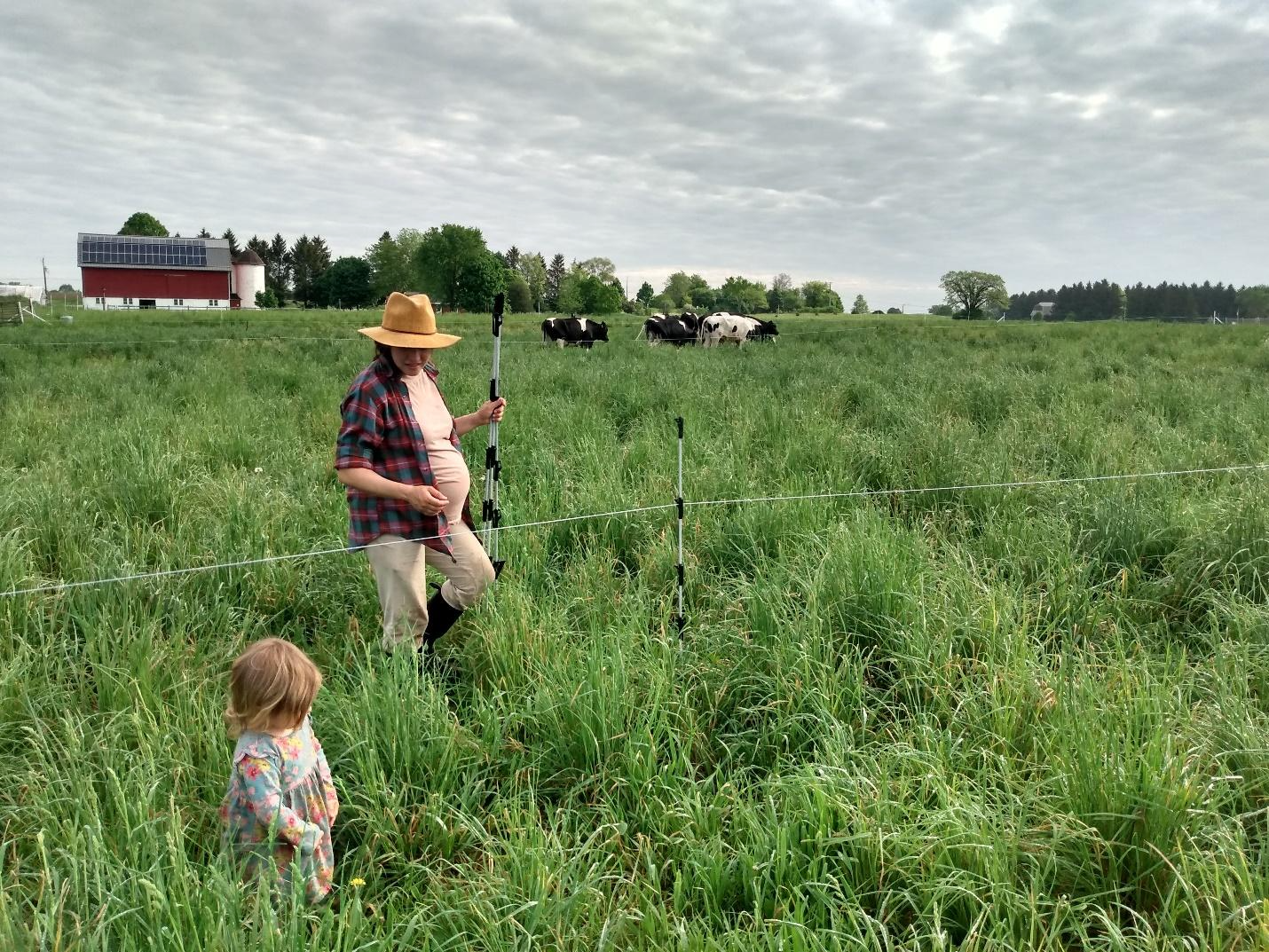
Courtney Gutschenritter and oldest daughter. Courtesy of Courtney Gutschenritter
After the birth of their second daughter, Courtney chose to pause the flower business, prioritizing caring for the couple’s children in these early years. These days, she satisfies her love for flowers with the 28 acres of pollinator plants that they’ve worked to establish.
In the two short years since the land has been converted, noticeable changes are already taking place. One night, when the family ventured out to check on the land, they could hear the difference in species between the pasture and pollinator habitats.
“We went out and there was a change in noise … we got into the pollinator pasture, and it sounded different. There must have been different bugs and different birds. I've never experienced anything like that before,” Courtney said.
In converting the land there have been years of fighting weeds as the new plants took root, with each year getting easier. In hindsight, the battles seem minimal in comparison to how they once appeared in the minds of young farmers taking a chance to lay out capital and considerable effort for an uncertain undertaking.
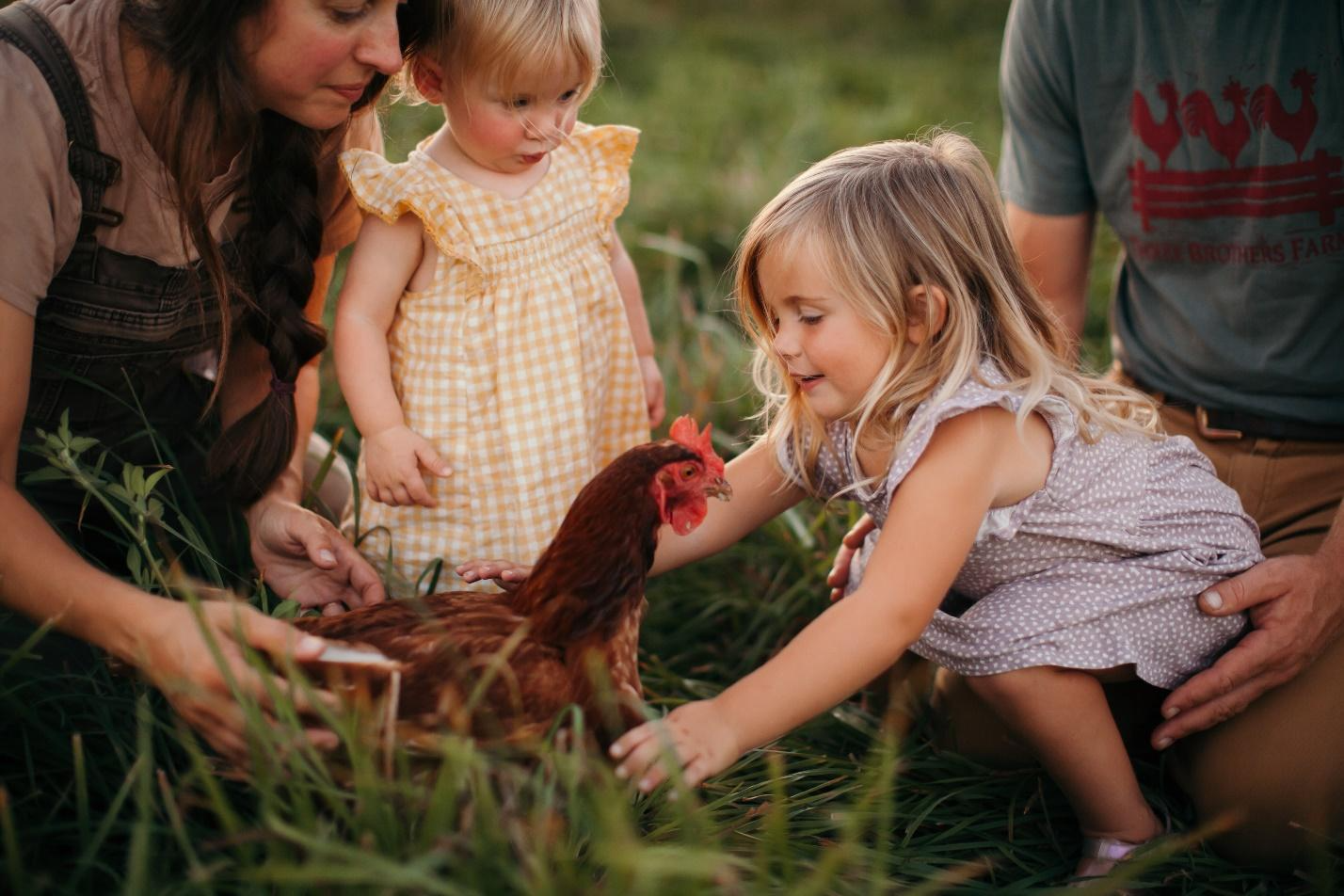
The Gutschenritter family. Courtesy of Courtney Gutschenritter
Today the perennial pastures feed the chickens who primarily support the farm with their eggs, which are sold to restaurants and grocery stores. This is something the entire family takes pride in, with the girls pitching in to help collect and pack, occasionally pausing to hug a hen. The pastures also feed the Shetland sheep, whose wool is turned into heirloom quality wool blankets and provide sheep skins and lamb meat.
Additionally, the pastures support cows from a neighbor’s dairy that are custom grazed—an arrangement that enables the Gutschenritters to put their ample pastures to use and mow less, without the additional overhead of having to house another herd in the winter months.
“[We] want to produce food in a way that is in respect with the natural world,” Courtney said. “We really are conservationists at heart.”
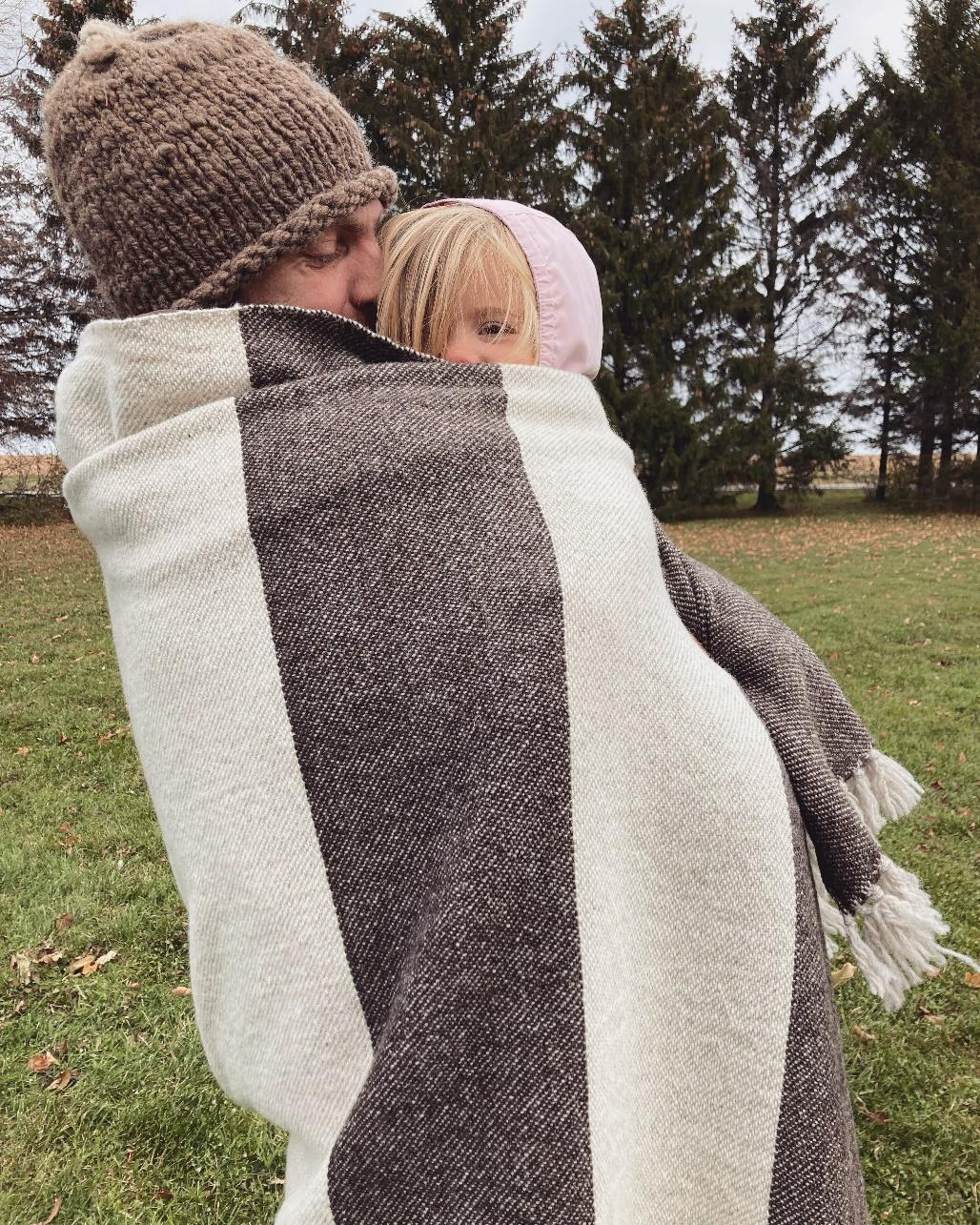
Michael with his daughter in one of the blankets the farm produces. Courtesy of Courtney Gutschenritter
In furthering their mission of bringing back native species to the area, the couple planted 200 Burr Oaks in the pasture this past year, with plans for more in the future. Oak savannah, once a prominent feature throughout southern Wisconsin, was wiped out with the advent of modern agriculture—something restoration efforts are working to restore in the area.
On the farm, the oaks will provide valuable shade to the animals and encourage species diversity on the land.
Change as the constant
In keeping with the ongoing evolution of the farm, Michael has continued to exercise his seemingly tireless confidence for undertaking new endeavors.
Since the birth of his children, he has designed a device that has streamlined the process of moving their flock of hens each day. It has also enabled them to grow their operation. The HenPen is a mobile coop and yard that provides 800 square feet of shade and 2,200 square feet of fenced-in yard space. The design is now sold to other farmers who can benefit from a similar system, in which one person can move in 5 minutes.
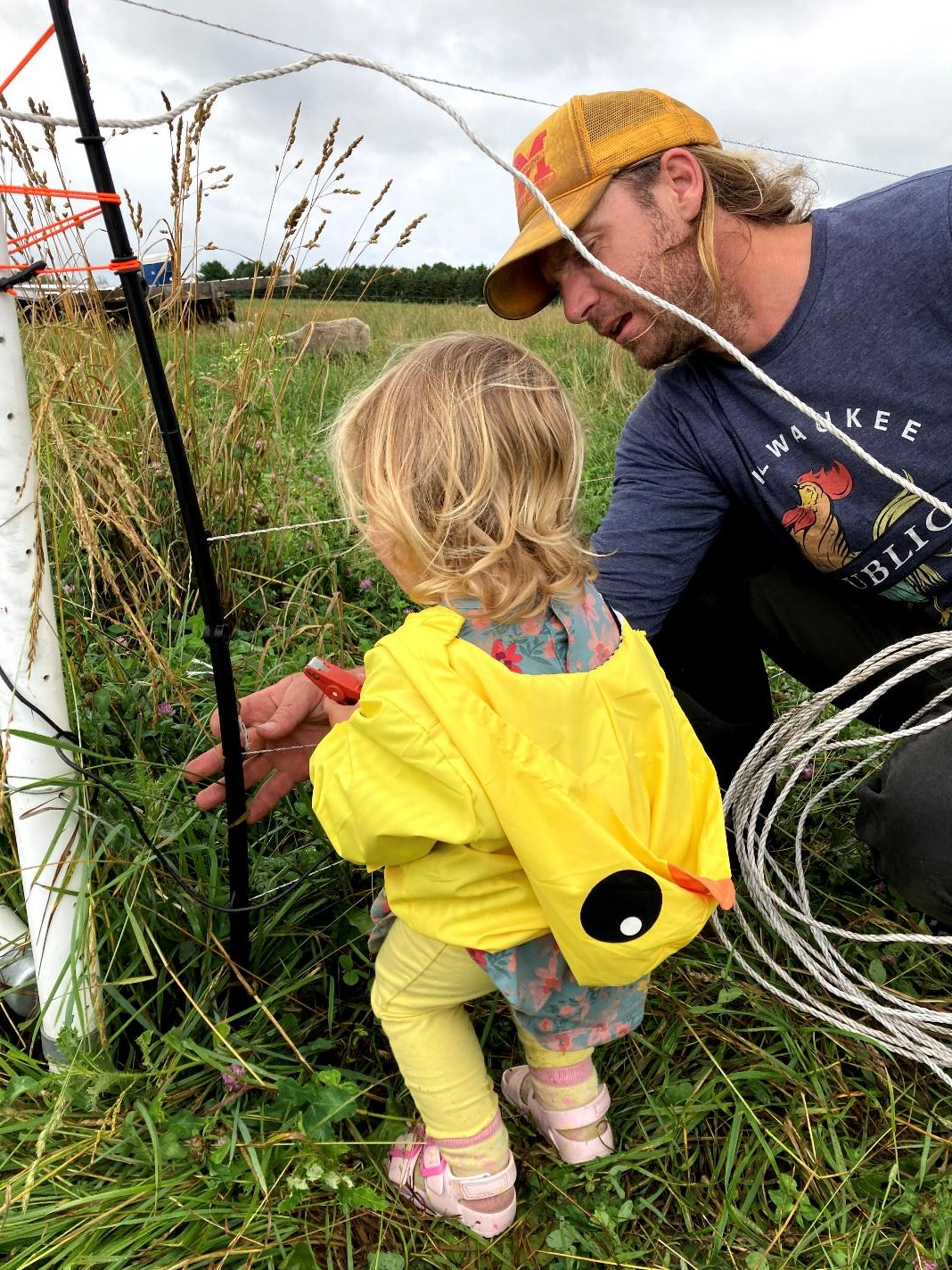
Michael working on a fencing project with his daughter. Courtesy of Courtney Gutschenritter
While nature is the embodiment of change, the Gutschenritter family has seemed to fall in sync with this spirit. What began as one man, emboldened by the love of his ancestral land to fulfill a dream, has become a family, with land so rich in diversity that you can hear it harmonizing in ebullient outbursts—an effort that’s echoed by the family’s youngest members.
Just as the Gutschenritters take pride in seeing how their efforts of transforming their land benefit the whole, providing humane living conditions for their animals, and supplying high quality products for consumers in an ethical way, they also take pride in raising their family close to the Earth.
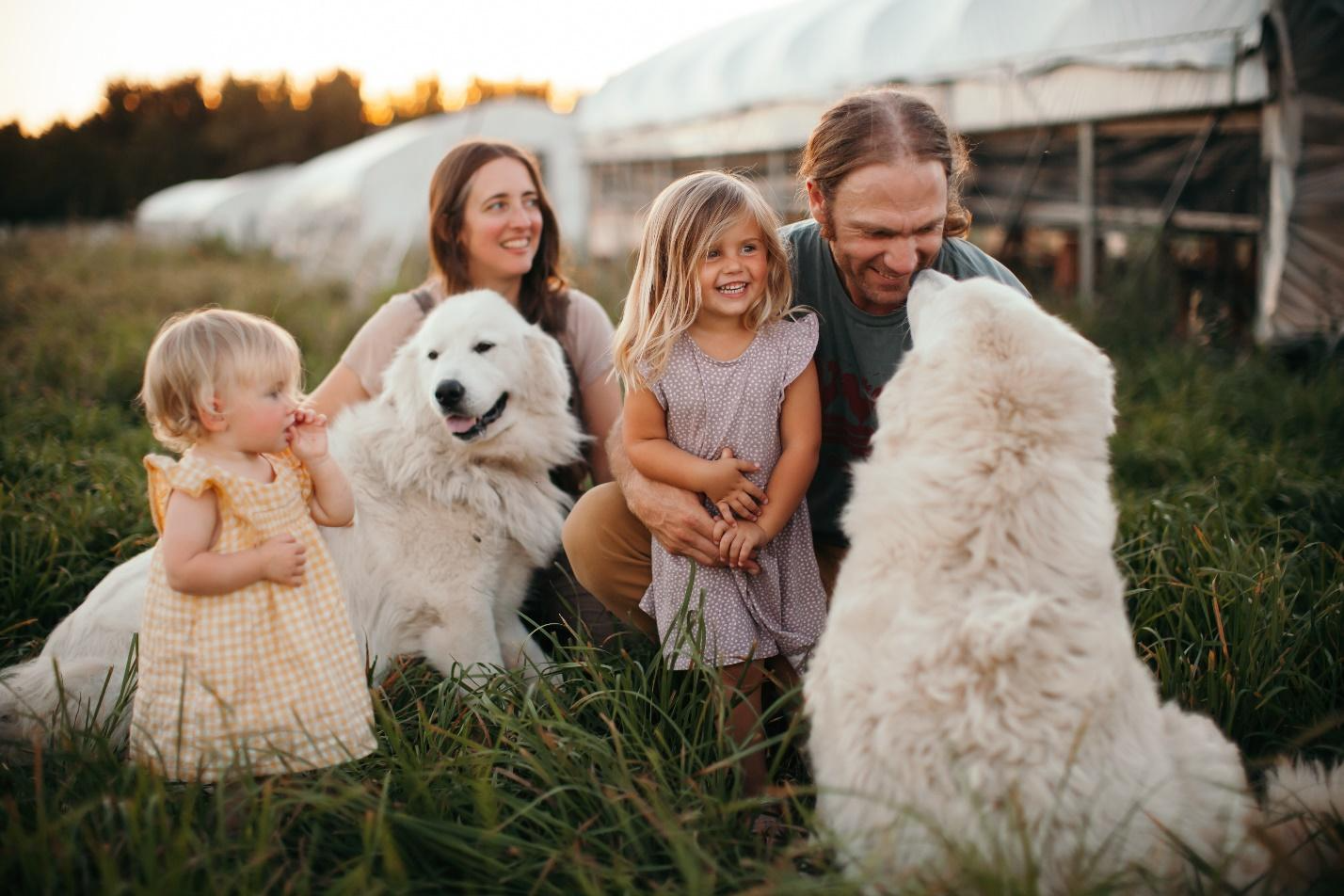
The Gutschenritter family. Courtesy of Courtney Gutschenritter
They are in a unique position in this modern world—one where they can watch their girls grow alongside the oak trees that they have returned to the landscape, living closely enough to the land to hear its changes as they quietly move through in the fading light, contented in the knowledge that their efforts are rippling outward and that their intentions are to leave this place better than they found it.
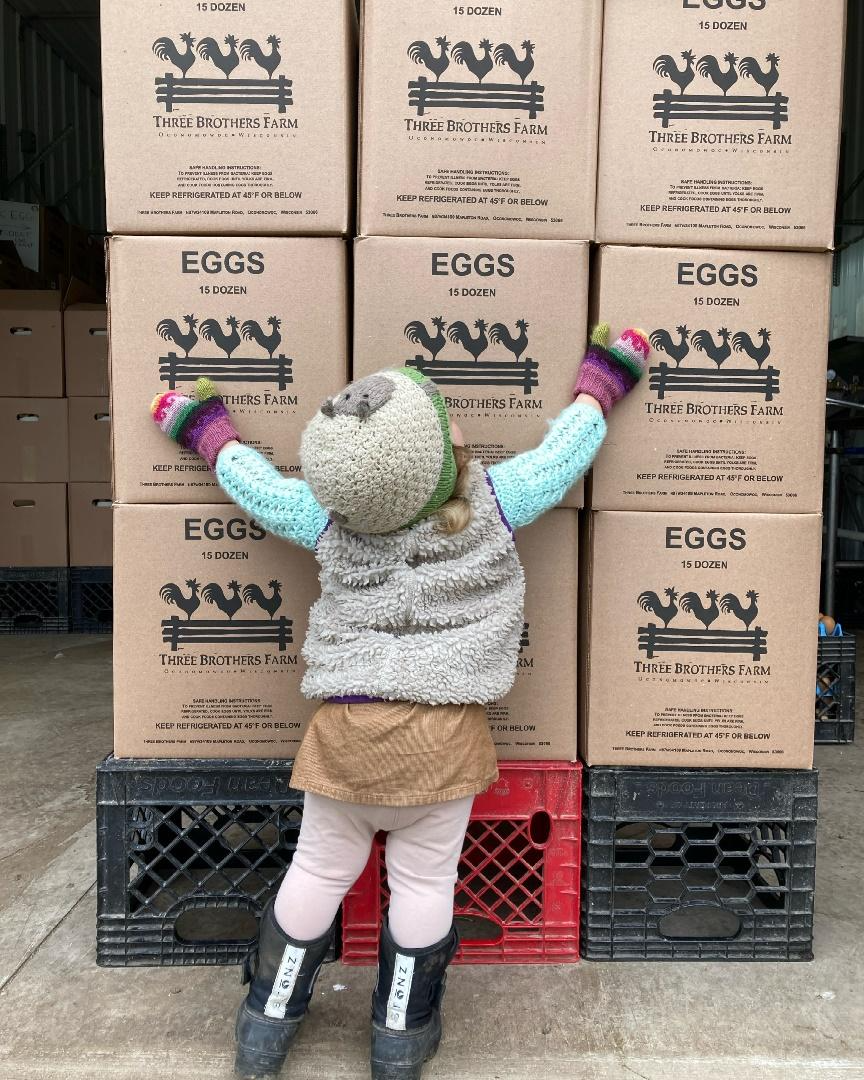
The Gutschenritter’s daughter, proud of their eggs. Courtesy of Courtney Gutschenritter
For more information, follow Three Brother’s Farm at @3brothersfarm.
